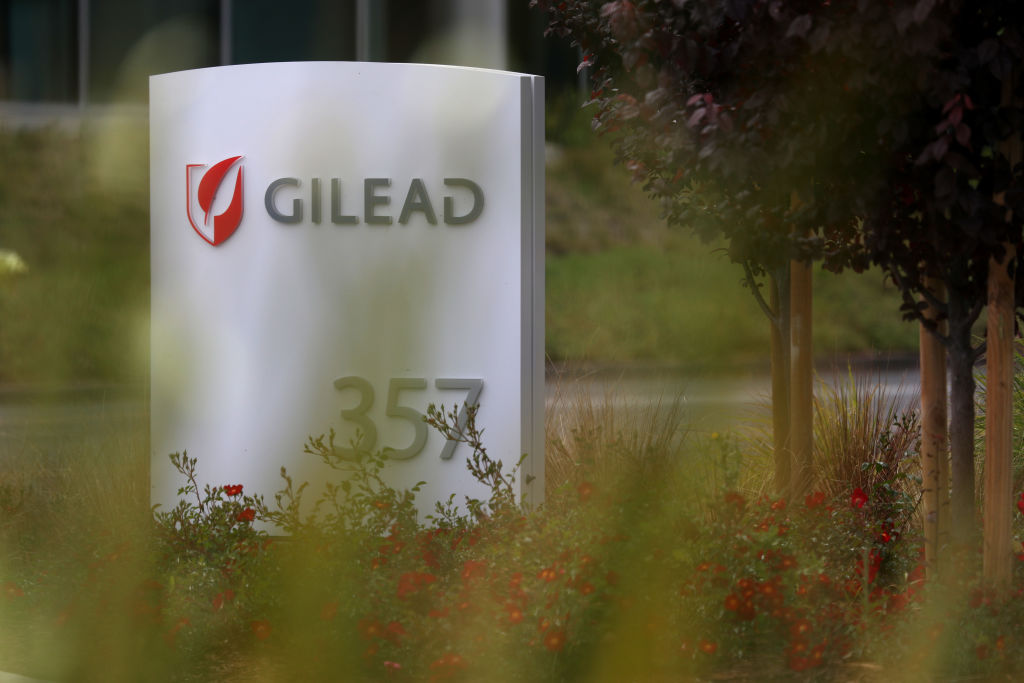
Five clinical trials testing a Gilead Sciences cancer drug that was the heart of a $4.9 billion acquisition are now paused by the FDA as the company tries to get to the bottom of a suspected but undisclosed safety problem. The partial clinical hold means that no new patients may be enrolled but those already participating in studies may continue to receive the experimental cancer immunotherapy.
The drug, magrolimab, was added to Gilead’s pipeline via the 2020 buyout of cancer drug developer Forty Seven. Foster City, California-based Gilead is evaluating the drug in 11 clinical trials. The partial hold affects studies testing magrolimab in combination with azacitidine, a type of chemotherapy. Three of those studies, one in myelodysplastic syndrome and two in acute myeloid leukemia, are Phase 3 clinical trials.
According to Gilead, the partial hold stems from an “apparent imbalance” in unexpected serious adverse reactions between study arms. The study or studies where this imbalance was reported by clinical trial investigators was not specified. Gilead added that the partial hold covers all of the ongoing studies testing the magrolimab/azacytidine combination as the company gathers more data to address FDA concerns that were also not disclosed.
Magrolimab is an antibody designed to target CD47, a protein found in abundance on the surface of cancer cells. This protein sends out a “don’t eat me signal.” Macrophages, immune cells that munch on pathogens, read that signal as a sign to leave cancer cells alone. By binding to CD47, magrolimab blocks the don’t eat me signal, which then clears the way for macrophages to recognize and go after cancer cells. While the class of CD47-targeting drugs is still experimental, this approach is viewed as promising, evidenced by major deals made by Gilead and others to add such drugs to their pipelines.
Gilead said that it has not identified a clear trend in the adverse reactions, nor has it identified any new safety signals. If the safety signal isn’t new, it might be an old one well-known to the class of CD47-targeting drugs. The challenge of targeting CD47 is that this protein is also found on red blood cells. Blocking CD47 on cancer cells can also block it on red blood cells, which then are targeted by macrophages. The result is anemia.

A Deep-dive Into Specialty Pharma
A specialty drug is a class of prescription medications used to treat complex, chronic or rare medical conditions. Although this classification was originally intended to define the treatment of rare, also termed “orphan” diseases, affecting fewer than 200,000 people in the US, more recently, specialty drugs have emerged as the cornerstone of treatment for chronic and complex diseases such as cancer, autoimmune conditions, diabetes, hepatitis C, and HIV/AIDS.
Forty Seven tested a way to reduce the anemia risk by using a priming dose of magrolimab. The thinking was that older red blood cells that express the CD47 protein would get targeted and cleared out, but younger red blood cells that replace them don’t express significant signals to trigger a response from immune cells and would be left alone. This approach worked in preclinical research, and Gilead has used it in its magrolimab clinical trials, which are designed to administer a priming dose followed by maintenance doses at a later time.
The anemia associated with targeting CD47 has led other companies to design their medicines to avoid this problem. I-Mab designs its antibodies in a way that reduces their ability to bind to red blood cells. That Shanghai-based biotech is developing its CD47 drug under a partnership with AbbVie. Arch Oncology, which raised $103 million in financing last year, is also developing antibodies with a lower propensity for binding to healthy cells.
Pfizer recently closed its $2.3 billion acquisition of CD47 drug developer Trillium Therapeutics. Trillium’s drugs are fusion proteins that in addition to blocking CD47 also engage macrophages with an additional “eat me” signal. In early-stage clinical data, Trillium had reported minimal binding of its drugs to red blood cells.
Gilead said that the patients already enrolled in the clinical trials now under a partial hold will be closely monitored according to the current protocols for those studies. The magrolimab clinical trials that are continuing unaffected by the partial hold span diffuse large B-cell lymphoma, multiple myeloma, head and neck squamous cell carcinoma, solid tumors, triple-negative breast cancer, and a planned study in colorectal cancer that is not yet recruiting patients.
“The safety and well-being of people enrolled in our studies is our top priority,” Gilead Chief Medical Officer Merdad Parsey said in a prepared statement. “We will share more information with the medical and patient community as soon as we can.”
Photo: Justin Sullivan, Getty Images













